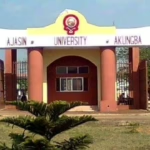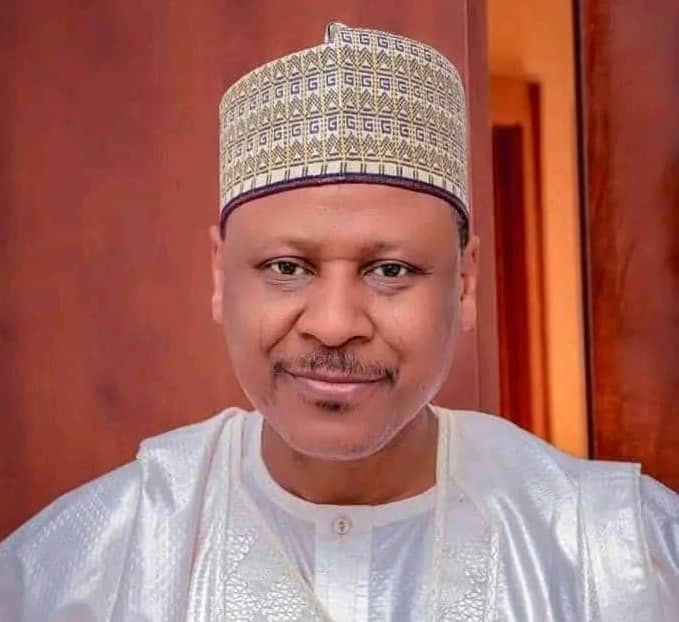President Tinubu’s Administration Champions Equitable Development Across Nigeria
Muhammad Idris, Nigeria’s Minister of Information and National Orientation, has reaffirmed the Tinubu administration’s unwavering dedication to fairness, inclusivity, and balanced progress in the allocation of federal projects, appointments, and opportunities throughout the country’s six geopolitical zones.
Addressing Misinformation and Highlighting Balanced Growth
In a press briefing held in Abuja, Minister Idris responded to circulating rumors and misleading narratives by emphasizing that since President Bola Tinubu took office in 2023, his government has prioritized equitable development and resource distribution. “Despite some misleading claims, this administration has shown exceptional commitment to ensuring all regions benefit fairly,” Idris asserted.
Inclusive Infrastructure Development and Regional Empowerment
Idris stressed that no geopolitical zone has been marginalized. Beyond ongoing projects within various Ministries, Departments, and Agencies (MDAs), the government has established Regional Development Commissions in all six zones to foster localized growth and address region-specific needs.
Significant infrastructure investments have been strategically spread between the North and South. For instance, the Lagos-Calabar Coastal Highway and the Badagry-Sokoto Superhighway exemplify efforts to maintain geographic balance in national development.
Federal Capital Project Distribution: A Closer Look
According to the minister, federal capital projects are currently allocated with a slight edge to the North, receiving 52% of the funding, while the South accounts for 48%. This distribution reflects a deliberate strategy to uplift historically underserved areas while continuing to develop economic hubs.
Breaking down the allocations by region reveals the North-West leading with ₦5.97 trillion, representing over 40% of total federal project approvals. Other allocations include South-South (₦2.41 trillion), North-Central (₦1.13 trillion), South-West excluding Lagos (₦604 billion), South-East (₦407 billion), and North-East (₦400 billion).
Showcasing Key Regional Projects
In the Northern zones, flagship projects include the dualized Sokoto-Gusau-Funtua-Zaria Road spanning 275 km with a budget of ₦824 billion, the 350 km Abuja-Kaduna-Kano Road (₦764 billion), and the BUA Tax Credit Roads covering 256 km across Jigawa, Katsina, and Kano states. Other vital routes such as Kano-Maiduguri, Bama-Dikwa, and Damaturu-Maiduguri roads are also receiving attention.
Southern infrastructure highlights feature the Lagos-Ibadan Expressway, Lagos-Sagamu corridor, and the Oyo-Ogbomoso-Ilorin Road, with investments totaling ₦146 billion. Additionally, major urban bridges like Carter, Third Mainland, and Eko Bridges have undergone rehabilitation with ₦120 billion allocated.
In the South-East and South-South, projects such as the Enugu-Onitsha Road, 2nd Niger Bridge Access Road, Lokpanta-Enugu Road, Eleme-Onne Road, Eket Bypass, Nembe-Brass Road, and the Bodo-Bonny Road (35 km with 12 bridges) are advancing, enhancing connectivity and economic activity.
Advancements in Energy and Transportation Sectors
Minister Idris highlighted significant progress in energy infrastructure, including the revitalization of the 255MW Kaduna Power Plant and ongoing work on the Ajaokuta-Kaduna-Kano (AKK) Gas Pipeline. Expansion of oil and gas exploration in Bauchi and Gombe states’ Kolmani region further underscores the administration’s commitment to energy security.
Rail transport has also seen accelerated development, with the Kano-Maradi rail line’s completion status jumping from a mere 5% to 67% under the current government’s focused funding and management.
Job Creation and Social Infrastructure Enhancements
Investment in transportation and infrastructure projects is projected to generate over 250,000 jobs nationwide, contributing significantly to economic growth and poverty reduction. In the health sector, more than 1,000 primary healthcare centers have been refurbished, reflecting the administration’s dedication to improving human capital and social services.
Merit-Based Political Appointments and Regional Development Initiatives
Idris emphasized that President Tinubu’s appointments are grounded in meritocracy, national unity, and competence, transcending sectional biases. The establishment of five new Regional Development Commissions and the Federal Ministry of Livestock Development exemplify targeted, inclusive governance aimed at addressing unique regional challenges.
Commitment to National Unity and Equitable Progress
“President Tinubu is focused on building infrastructure that benefits the entire nation rather than pursuing localized accolades,” Idris remarked. While Lagos continues to be enhanced as Nigeria’s commercial nerve center, the Northwest’s substantial share of infrastructure projects demonstrates balanced attention to all regions.
The minister concluded by assuring Nigerians that under Tinubu’s leadership, no region will be neglected in the country’s ongoing development journey, reinforcing a vision of unity, fairness, and sustainable progress.























0 Comments